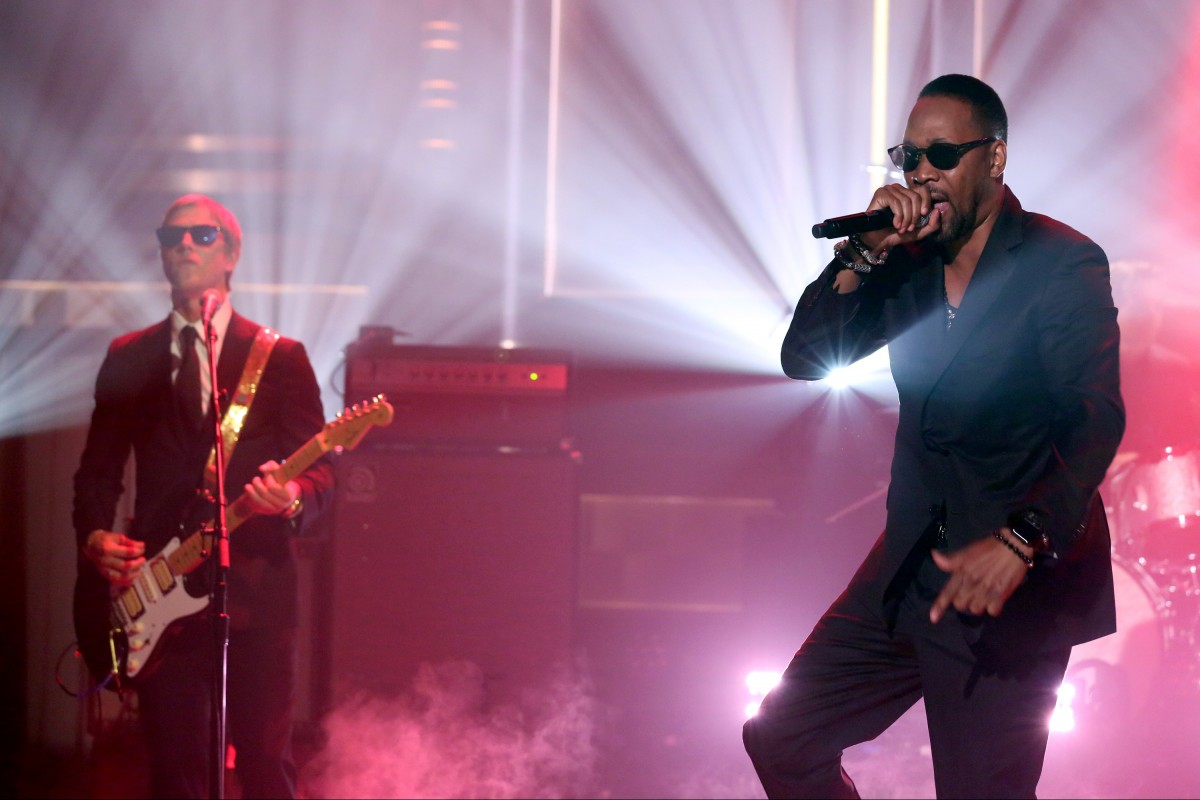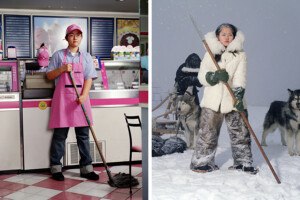Wu-Tang Clan Legend RZA Talks JFK, RFK, and Almost Starring in The Departed

Photo by Andrew Lipovsky /NBC
Boston hip-hop fans are in for a treat as Robert Fitzgerald Diggs, aka Wu-Tang Clan legend RZA, is coming to town this weekend. The rapper recently formed a new supergroup called Banks & Steelz with Interpol rocker Paul Banks, and will be performing at the Sinclair on Saturday night. Ahead, RZA opens up about his latest record, why his mother named him after the Kennedys, and his regrets over turning down a role in The Departed.
On the new track ‘Gonna Make It,’ you sample a John F. Kennedy speech about exploring space. Your mother also named you after the former president and his brother Robert. Have the Kennedys had any impact on you as an artist?
[Paul Banks] actually brought the JFK sample to the studio, then I explained to him how, “No, we’re keeping that. I love that. I’m glad you brought it and not me.” I explained to him my connection to the Kennedys. The Kennedy brothers really had a big effect on my mother. She loved what they stood for, that’s why she named her son after them. I think the ideas that they possessed and tried to put into our country, whether it’s the idea of man achieving the high glory of reaching the moon or the glory of trying to help spread civil liberties to the people, fulfill the promise of our Constitution. Those type of things, I think, are always admirable. My mother was really touched by that and she named me after them. I think in parts of my life you’ll see some resemblance to those ideas in some of my lyrics.
You almost had a role in The Departed, but couldn’t do it due to scheduling reasons. Do you regret not being in the movie?
First of all, I love that film. It’s Hollywood. You get chances to come in and read or your name pops up in circles for a film. Of course if it fits in your schedule, then you go with it. For me, Hollywood was so new to me, especially that film. I’ve got a lot of regrets only because I didn’t know no better. That’s all. Not knowing no better, you don’t know. There’s a film I didn’t do this year that I think I’m going to regret. I kind of read the character again a month after I didn’t do it, and I was like, “I should’ve just f–king and went and did this one.” This one was actually cool. I would’ve been a good guy to play that character. I’ve been kind of very into just trying to find the right way to express my art.
The new album, Anything But Words, has been in the making for a few years. What was your goal with it and what was the sonic picture you were trying to paint?
I don’t think like we had a constant goal, like for instance, if you think of a record like Only Built 4 Cuban Linx… or Liquid Swords, where I’m trying to give you a visual movie. In this particular case, it was more like a—and this probably a big statement—but it was more like a [Paul] McCartney-[John] Lennon type of vibe. Two songwriters coming together to write songs together. Two guys who are capable of doing it separately, capable of being a part of a band that’s successful. We kind of got a kick out of each other and we did some jamming. We didn’t know that Tyler Childs, he now manages the group, we didn’t know that he was actually playing our jam sessions for people. We got heard by an executive at Warner Brothers, and he was like, “Yo, can we get these guys to do a whole record together?” And then they came with the financials, and we were like, “Sure.” We talked about concepts at the beginning, but a few months in, we were like, “Let’s just make songs. Let’s not put ourselves in a box.”
You’ve talked a lot in the past about expanding your knowledge of music theory with your work. How has this collaboration contributed to your growth as an artist?
Theory was all involved with it. Even if it’s two dissonant chords, it was all keyed right. Everything just fell into what a composer would do. I think this record really reflects the knowledge that I’ve gained. One cool thing I’ll say that, my partner Paul, when he was going through different ideas of what to do with this album, some of my chord progressions that would probably be shunned by some other people, was actually inspiring to him.
You’ve also spoken about wanting to make music that can be duplicated and covered by future generations. Why is that important to you?
As you grow into manhood, a certain revelation comes to you. It’s only right that music has given me so much, that I give back to music in every aspect, not just in the hip-hop aspect, which is of course my foundation. I’m so grateful to be apart of that history. But even in the aspect of taking the theories of music that are thousands of years old, if not older, and then putting together my combination of chord progressions and melodies and instrumentation. One of my biggest heroes was Isaac Hayes. I actually think my production style resembles Isaac Hayes and David Porter. I sampled a lot of their music and I think that my style resembles theirs. I would love to see it passed on, if sampling becomes useful again. But if not, I know, on the album, that these songs can be covered in almost any genre.
Banks & Steelz perform at the Sinclair on Saturday, September 3.
This interview has been edited and condensed.


